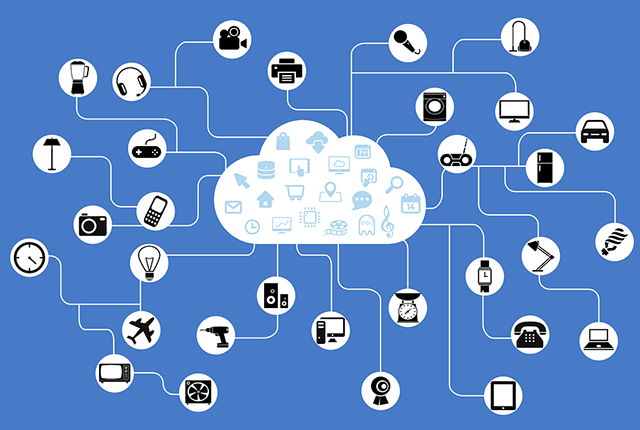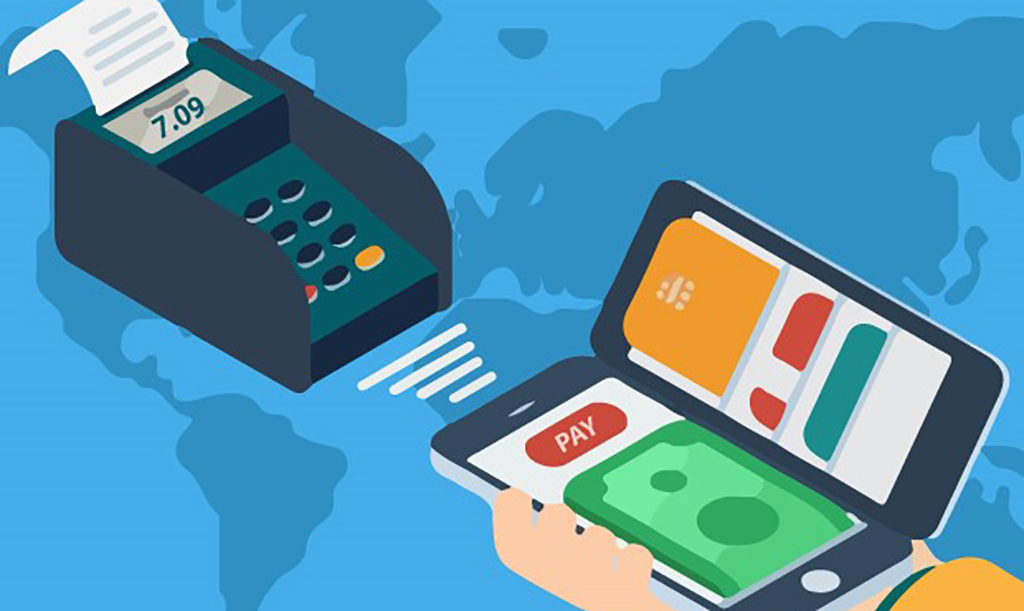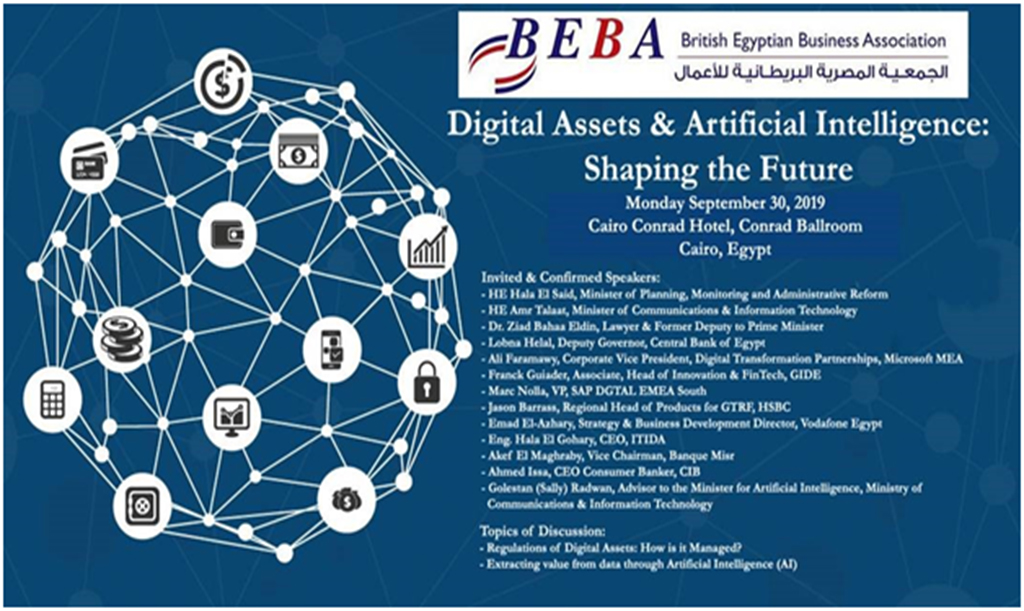Five Technologies Expected to Reshape FinTech in 2020
9 Sept 2019
What happens when finance – possibly the largest industry in the world today – merges with current and futuristic technologies? The result is a balanced fusion that is bound to take over almost every aspect of our daily lives; how we buy, how we sell and how we live.
FinTech is not just here to stay; it’s growing at such an enormous pace that it’s hard to imagine how we could manage without the convenience, ease and constant availability of its products & services on our devices. It wasn’t long ago that it was considered as cutting-edge innovation, but today it’s found itself seamlessly woven into our daily reality.
McKinsey states that 80% of traditional financial institutions have been exploring innovations in 2018, and that FinTech investments are estimated to reach $30.8 billion; a tremendous increase from $1.8 billion in 2011.
Here is a list of the top five technologies expected to revolutionize the thriving sector in 2020:
1)Regulatory Technology (RegTech)
Regulatory processes in finance are crucial for monitoring the sector in all its policies and applications, and FinTech has seen some challenges when it comes to regulating its offerings on a commercial level. RegTech is currently in the process of adapting automated solutions to manage regulation monitoring, compliance, and reporting, as it learns and benefits from groundbreaking software innovations in the FinTech sector. Tracking and keeping track of new regulatory processes & requirements in a single database is a convenient manner of adopting financial institutions to legal requirements.
RegTech yields several benefits such as controlling big data in a cheap, fast and simplified way, automating search for specific regulations, quick pre/post-trade compliance and ultimately protecting the interests of financial institutions, regulators, and consumers by connecting all three.
Recent innovation efforts in RegTech include an established cooperation between financial institutions and regulatory organizations to enable RegTech development, as well as a collaborative approach between governments and financial organizations to share their expertise in common projects.
The need for RegTech solutions is evident, and it’s likely that this need will soon be satisfied by prominent startups in 2020; a notion that should motivate financial institutions to consider focusing on RegTech in the coming period.
2)Artificial Intelligence (AI), Machine Learning (ML) and Internet of things (IoT)
AI-centric solutions in the FinTech sector have been in focus for some time now. Although it has witnessed continuous innovation to fine-tune its potential across a purely digital industry, its efficiency and real-world applications are still being questioned. That being said, its unexplored potential is constantly attracting investors aiming to develop its full innovative capabilities.
Standalone AI solutions still have not risen to expectations, however smaller applications such as add-ons for modeling techniques and analytics are successfully being used in banking. In FinTech, Artificial Intelligence is a major contributor in big data and management solutions, where it creates valuable insights, analyzes performances and automates critical organizational processes like team administration, documentation and client communication.
A prominent example of an AI application is Bloomberg’s price-forecasting software solution called Alpaca Forecast AI Prediction Matrix, which is capable of processing millions of deal records, recording demand movements, defining patterns, and forecasting future price changes.
Machine Learning (ML) is one of the key components of AI, being widely used in banking areas such as fraud detection & prevention, risk management, fund development predictions and customer service.
On the other hand, an Internet of Things (IoT) network enables connecting financial databases to smartphones, exchanging data between devices and increasing the speed of financial processes, both on an internal (team management and organization) and external (client management and communication) basis.
So far, retail banking is the area that shows the most promise and clarity when it comes to FinTech IoT. A good example of that is CitiBank’s beacon-based solution for unlocking ATM entrances with smartphones during off-time.
3)Blockchain Technology
The rising technology of Blockchain has had its ups and downs, but one thing remains for sure: innovation is thriving at both a commercial and sub-commercial level. The P2P technology is nothing short of fascinating, although its applications leave much to doubt in terms of privacy and regulation.
Several Asian banks have officially adopted Blockchain tech, specifically to secure financial transactions, and European & American FIs are expected to follow the trend.
Benefits of using Blockchain in FinTech include impenetrable and complete encryption of financial transactions, the need for approval of every single stakeholder for transactions in a network (making hacking very unlikely) and the use of tokenization, which enables international businesses to use universal currencies as opposed to country-specific money.
The Australian Commonwealth Bank and the Russian Alfa Bank are two of the foremost institutions using Blockchain tech, and new players join the P2P trend on a monthly basis.
4)Robotic Process Automation (RPA)
RPA commonly uses robotics technology to complete programmable tasks via GUI (Graphical User Interface), where FIs apply RPA to their business management solutions, aiming to reduce the use of the human element in routine processes.
RPA ranges from simple tasks like selecting items and sending emails to complex ones like report creation and database management. The most common procedures that feature RPA are statistics collection, calculations that deliver a company’s performance and transaction management, documentation management and the control of email, their attachments and similar actions.
5)Conversational Banking
AI and language processing technologies have come a long way and are tunneling fast into the future, and that certainly includes FinTech applications; the most common being chatbots for now. The use of chatbots in financial services & management is referred to as conversational banking.
Chatbots are typically used in customer support, providing automated, fast and clear responses to customer inquiries & FAQs on a 24-hour basis. They are also used in account management, where chatbots can walk clients through routine processes like registration, making a transaction and applying for a loan. A third application is financial management, where chatbots play the role of financial advisors on-the-go by keeping track of budgeting, taxes and similar areas.
A good example of efficient conversation banking is Bank of America’s chatbot Erica. It processes text and voice inputs and provides users with answers through text or voice as well, making frequent inquires an easy task to handle without any needed human input.
All in all, 2020 looks to be a promising year for emerging FinTech technologies that will further empower FIs, investors and customers alike in the digital finance sector for years to come.
Tags
McKinsey, FinTech 2020, Artificial Intelligence, chatbots, RegTech, Financial Institutions, Machine Learning, IoT, Internet of Things, RPA, CitiBank, Blockchain, Bank of America, Erica, Commonwealth Bank, Alfa Bank
related articles

Financial Health is What FinTech Should Be Empowering

How IoT is Infiltrating FinTech Payments

Setting Digital Banking Transformation Priorities During a Pandemic

The State of Biometrics in 2020 and Beyond

Regulatory Technology is the Unsung Hero of Digital Transformation

Bridging the Digital Divide with APIs

The Impact of IoT on FinTech & Banking

Shifting from Disruption to Innovation through FinTech Partnerships in COVID19 pandemic.

How is Banking Changing with COVID-19?

Customer Service Transformation has become a must in a Digital World

The Opportunities and Threats of FinTech during COVID-19

How FinTech can relate to the Healthcare Industry

Humanizing Services through Smart Banking Technologies

MSME Lending & FinTech: What to Expect in 2020

How Digital Innovation can Transform the Future of Banks

Banking Experts Forecast Key FinTech Trends in 2020

How FinTech is Changing the Finance Industry.

6 FinTech Trends That Will Transform Banking In 2020

FinTech Trends To Keep An Eye On In 2020

How FinTech Can Contribute To Healthcare

How many digital Middle Eastern companies have unlocked their full innovative potential?

Singapore FinTech Festival 2019: A Meeting of the Minds

Digital Banking vs Physical Branches: Competition Not Mandatory

BEBA presents the Digital Assets & Artificial Intelligence: Shaping the Future event
.jpg)
Egypt’s First Artificial Intelligence Faculty launched at Kafr El Sheikh University


 0
0
 3.8k
3.8k 



Comments